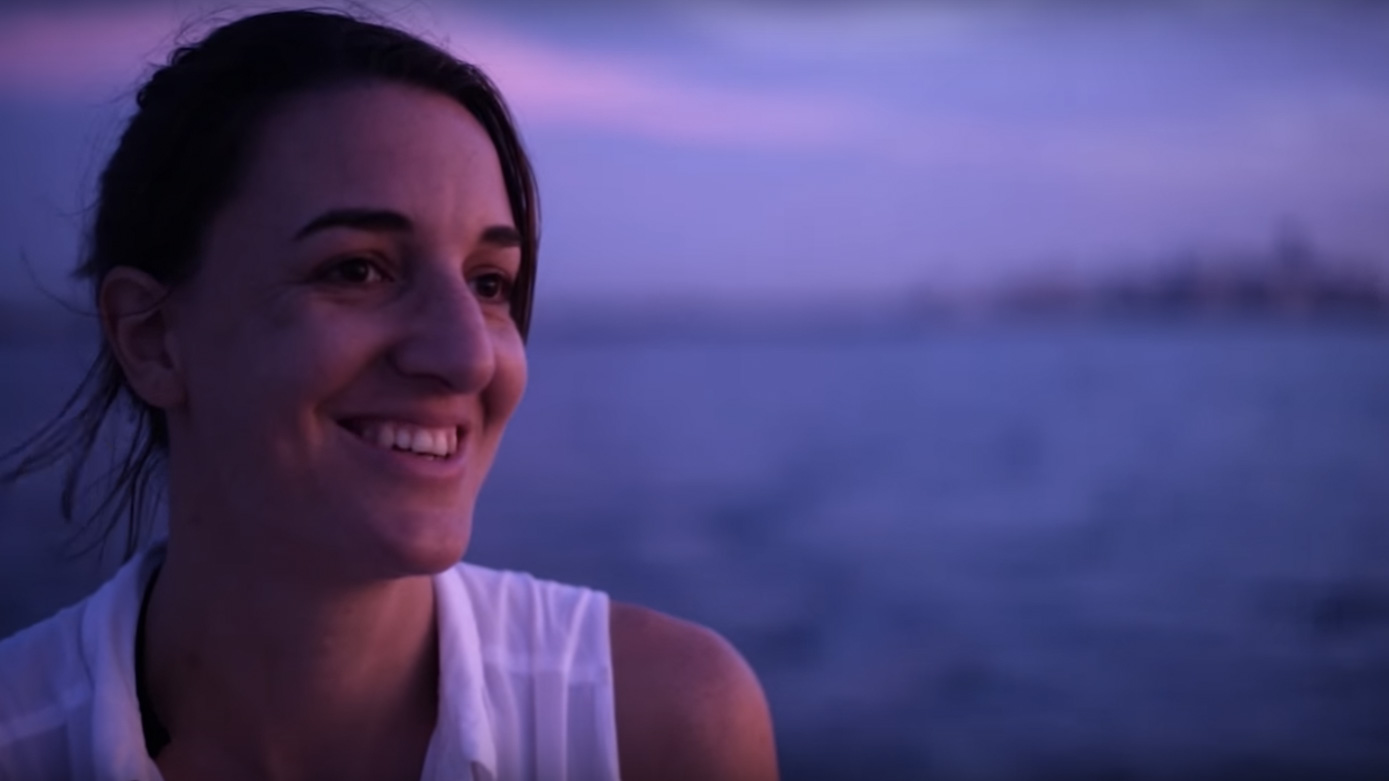As the University of Miami’s first JD/PhD in Environmental Science and Policy graduate student, Annie Brett entered uncharted territory when she began a joint degree at UM. However, as a natural explorer, Annie was confident about this new journey.
“I was the first to do this kind of joint program, so there were a lot of unknowns. I am grateful I found an extremely supportive environment at UM. Faculty and staff from both of my programs went beyond what was necessary to help me,” she expressed.
She completed both degrees in 5 years, which is an impressive feat for any doctoral student, let alone a joint degree student. This spring Annie graduates with a PhD in Environmental and Science Policy, having finished her law degree in spring 2017.
Annie’s PhD from the Abess Center for Ecosystem Science and Policy allowed her to take an interdisciplinary approach to research and complement that with her interest in legal studies. Her research focuses on the different methods of ocean data collection and the use of data in legal contexts, particularly on data from citizen scientists and new technologies. These methods are crucial for gathering information on the ocean to create marine laws.
This focus on new technologies for data collection in exploration led to her most memorable experience at UM. In December 2016, her advisor, renowned National Geographic explorer and cave diver Dr. Kenny Broad, selected her to help run a three-week expedition to study the deep blue holes in the Bahamas funded by National Geographic.
“It was amazing to spend time with all of these very experienced cave divers and be part of their outreach efforts in the local community. It was inspiring for me to see how science, when it is framed as an exciting National Geographic expedition, not as something that just happens in a lab, can engage people in a really different way,” recalled Annie.
Since February, she has been working in Cape Cod at the Sea Education Association (SEA), affiliated with Boston University, teaching advanced undergraduates about marine policy. This opportunity with SEA allowed her to further her research on how these students collected data as citizen scientists. Annie prepared her students for an extended research voyage the program makes every year to French Polynesia. She returned to Miami in April to wrap up her research and submit her dissertation entitled Toward Understanding Law and Exploration: Citizen Science, Technology and Regulation.
Over the next nine months, Annie has several research trips at sea planned on new and creative methods and technologies to collect data on marine protected areas, potentially in the Caribbean and Pacific. She will also continue to work with SEA as a visiting faculty member. Next spring, Annie hopes to be able to join her students on their extended voyage and this time make the journey to French Polynesia with them.
“I am very excited about this because I did most of my research before Graduate School in the South Pacific. It’s been over a decade, so I would love the opportunity to go back and come full circle,” said Annie.

